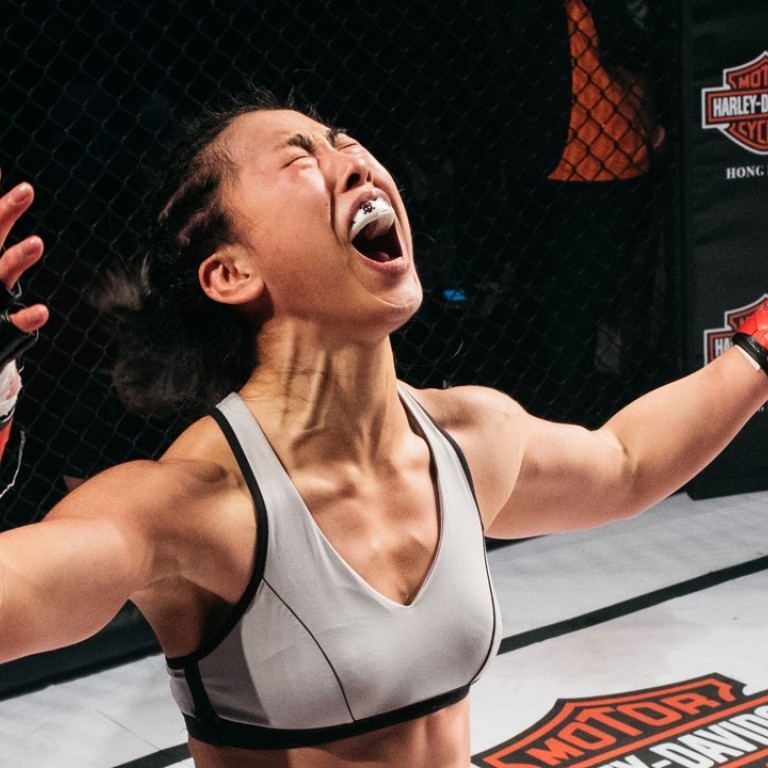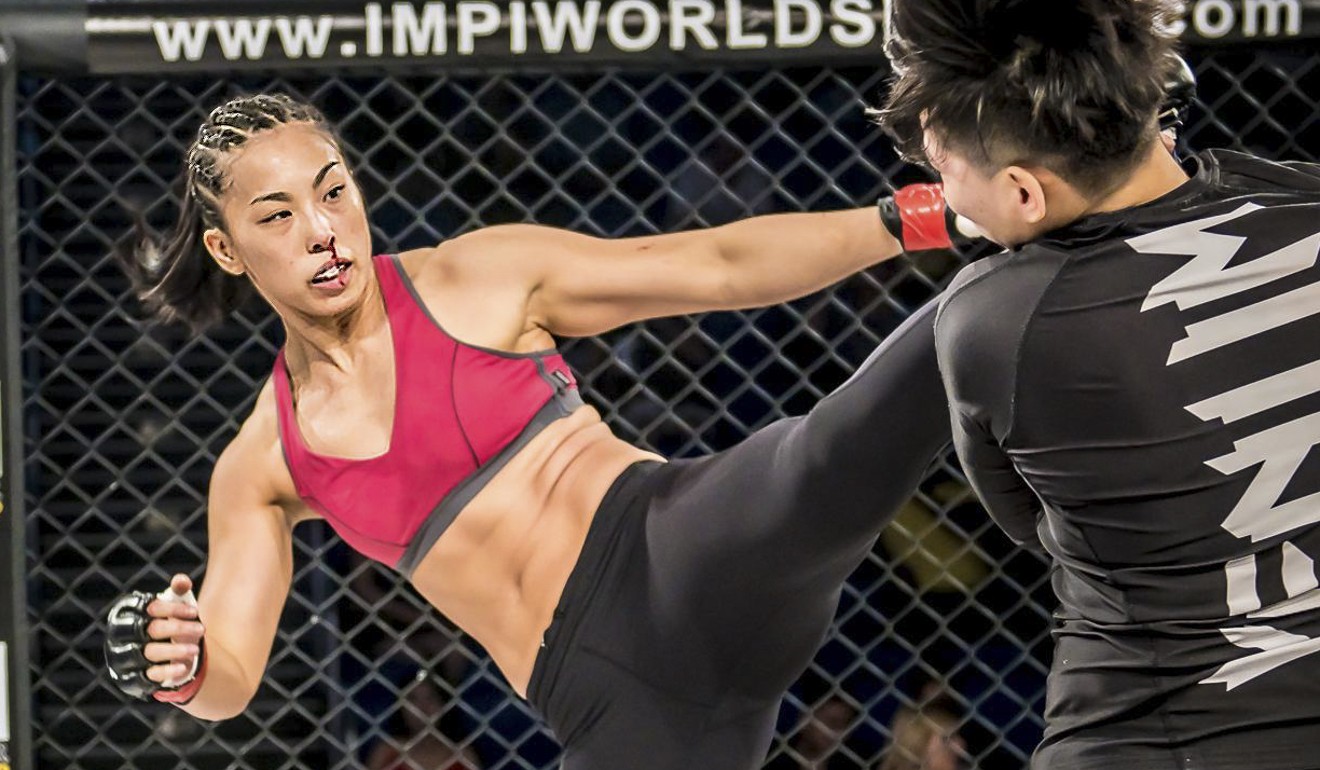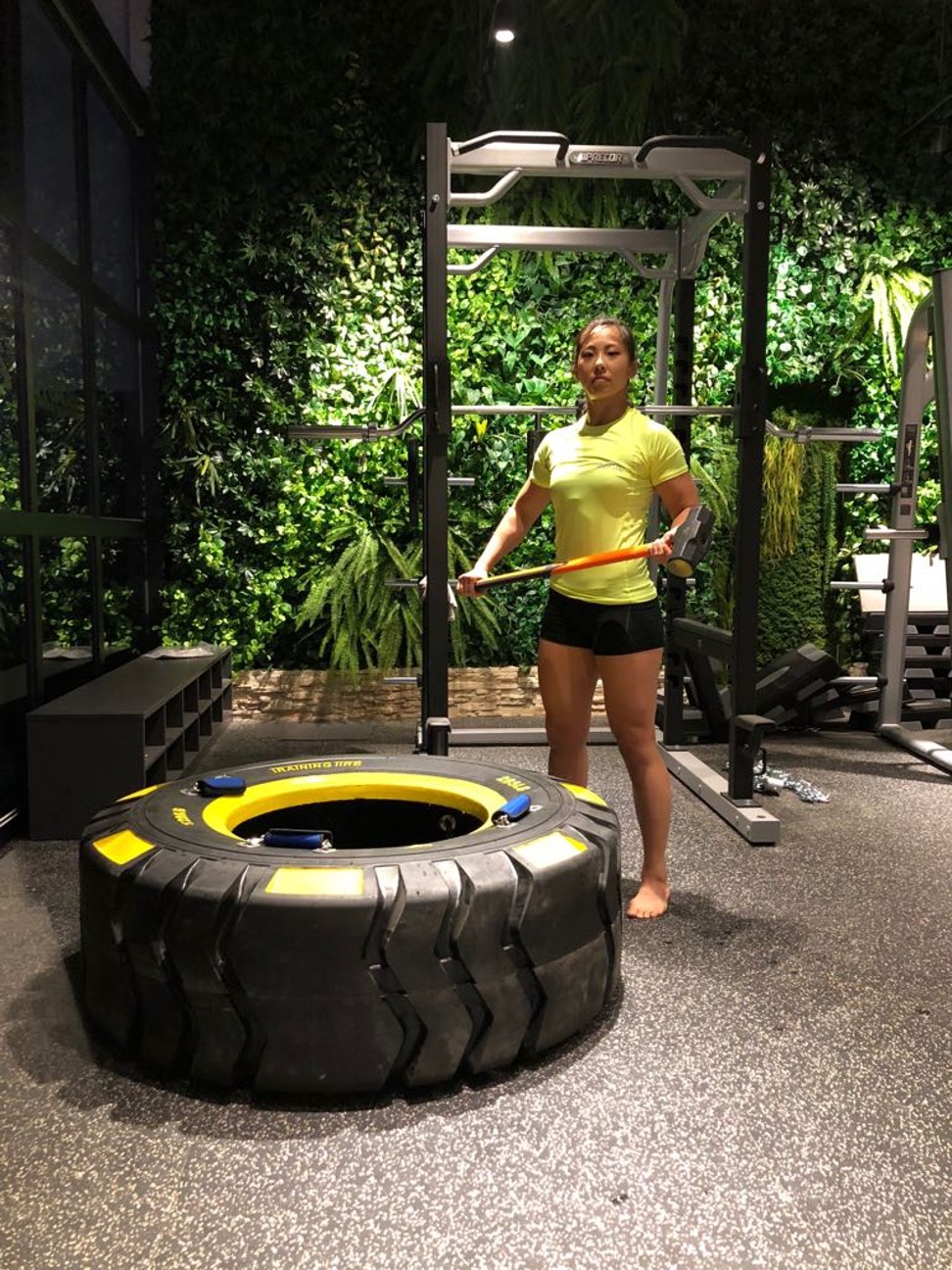
Hong Kong MMA star Ramona Pascual opens up on career-threatening injury: ‘two years ago I probably would have given up’
The 29-year-old Hongkonger shares her experiences on overcoming adversity via TEDX talk and social media
Ramona Pascual thought she was in trouble the instant she heard her knee go pop, but it still took some time for the true devastation to dawn.
“I was in the red zone, my heart was pounding,” said Pascual. “But I knew right then it was over.”
Just two weeks out from what she has described as “the fight of my life”, Pascual had been trying to execute a hip toss in the very last minute of her very last contact training session.
The 29-year-old Hong Kong bantamweight had been set to face debut fighter Marina Kumagai of Japan as part of the Road FC 47 card on May 12 in Beijing and she had just started to make good on the promise she had always shown in the mixed martial arts cage.
Her debut with the Road FC organisation – South Korea’s largest – last December ended in an impressive unanimous points decision over another debutant in South Korean Jin Seo-woo that took Pascual’s record to 3-2, and she was looking to build on that success as she grew in strength and in ability.
But then came the injury – later diagnosed as a medial patella ligament tear – and an estimated six to nine months in recovery.
“It was the best fight camp I had ever done – at Phuket Top Team,” said Pascual. “Just the energy in that gym when you’re surrounded by all these top fighters from all over the world, it makes you push.
“It was just so exciting, I didn’t want to miss a single session. I suppose ego comes into it a little, but it wasn’t until after that I realised it was overtraining. I guess I was in denial.”
Confidence is such a major player in combat sports that what can go unnoticed by those outside the cage – as much as it goes unspoken by those who ply their trade inside it – is just how devastating it can be when injury, or loss, brings an athlete’s world crashing down.
Increasingly, fighters are opening up about their experiences – both good and bad – as martial arts training continues to cross over into the mainstream.
“You build yourself up to such a degree that in a way you think you can’t get hurt, but you can,” said Pascual. “There were just so many emotions with the injury, it was like they were attacking me. And this was after being the happiest I had ever been in my entire life. I had never felt better.
“I was crushed by it and for a while I really didn’t know how to react. In 10 days I gained nine kilograms. You have to deal with all the ‘whys’ and you replay the week, the day, the moment.”

The injury was her second major sports setback after an ACL injury ended her time with Hong Kong rugby’s national set-up.
“I had a full-time job then so it was bad, but it wasn’t the end of the world for me,” said Pascual. “But this came after I had dedicated myself to see how far I could go in MMA.
“This year I was going to fight three to four times and if I didn’t have MMA fights I was going to fill my time with Muay Thai fights.”
But as Pascual began to map out her recovery, she decided to share her experiences – and the pain and disappointment she has been through.
A TEDx talk in Hong Kong that had been arranged before the injury took on fresh relevance given Pascual’s chosen topic was fear management, and the sometime personal trainer has also been charting her progress, as well as her frustrations, through social media.
“Two years ago I probably would have given up,” said Pascual, who had turned a background in Muay Thai into an MMA career.
“Sports psychology is something I am deeply passionate about and how to deal with adversity, but whereas before I might not have known how to advise someone, now I really know what people are going through. I think it’s important to share what you have learned.”
Ultimate Fighting Championship (UFC) light heavyweight Tyson Pedro (7-2) suffered a similar setback when he shattered a fibula five years ago. Coupled with a dislocated ankle – the result of a fall while playing rugby union – it left him pretty much unable to walk. At the time he was just 1-0 into his MMA career.
“It was a life-changing experience to have an injury like that just before a fight,” the 26-year-old Australian told the South China Morning Post. “I am just very thankful I am now able to train and to fight after not being able to walk down the stairs.”
Pedro said the rehab had made him stronger mentally and had helped focus his mind on what exactly he needed to do to compete at the highest level of the sport.
“You have to take the positives out of everything,” he said. “That’s one of the most important lessons you learn from martial arts.
“People talk a lot about the physical benefits but the more I train and the more I fight, the more I realise how much stronger I have become mentally. It helps me in all parts of my life.”
Japanese atomweight Mei “V.V” Yamaguchi (17-11-1) displayed similar mental strength when dealing with the disappointment of a loss to One Championship reigning champion Angela “Unstoppable” Lee (9-0) in Singapore in May.
Not long after the fight and Yamaguchi was back in the cage facing the press. The loss quite obviously hurt – Yamaguchi had lost a similarly tight decision to Lee in May 2016 – but the Japanese veteran took the philosophical road when dealing with the disappointment.
“The more I fight the more I realise that it all comes down to me,” she said. “You have to take the result out of the hands of the referee and if you lose there is no one else to blame. You have to learn from the loss and you have to move on.”
Pascual is following the same path. Two months into her rehab and the improvements have begun, and the goals have been set.
“There are aspects of training I can explore now that I never have before,” said Pascual. “It still sucks, what has happened to me, but if you keep your mind occupied, you keep moving forward, and you keep telling yourself can achieve anything you want.”


